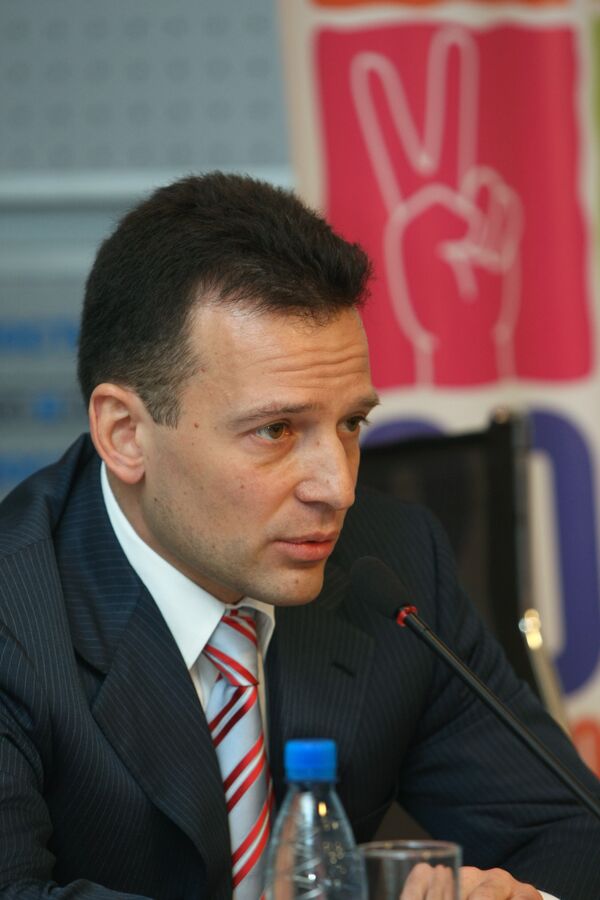Kremlin youth policy bosses may face criminal charges over staging cyberattacks on media and carelessly discussing it in emails that were leaked by the Russian wing of The Anonymous politicized hacker group.
Archives for two mailboxes at the free email service Mail.ru, allegedly belonging to Vasily Yakemenko, founder of the Nashi youth group and the head of the Federal Agency for Youth Affairs, and his right hand, Kristina Potupchik, appeared online last week.
One email ascribed to Potupchik discusses staging a DDoS attack on the website of Kommersant daily over a scathing publication in 2008.
"Kommersant daily will be demanding from the Interior Ministry to open a case against Ms. Potupchik and the others involved," head of Kommersant publishing house, Demyan Kudryavtsev, wrote on his Livejournal blog on Thursday.
Police said on Thursday it received no complaints from Kommersant. Meanwhile, a fresh cyberattack brought down Livejournal.com and several websites hosting the leaked mail for download.
Potupchik and Yakemenko, the latter of whom admits keeping informal ties with Nashi, have refused all requests to comment on the authenticity of the leaks.
The Anonymous, a loose global affiliation of cyber-savvy political activists, were not previously active in Russia, but have targeted websites including those of Visa, Mastercard and the FBI. They also hacked email accounts of Syrian President Bashar al-Assad and his numerous subordinates earlier this week.
Nashi, founded in 2005, became the most prominent youth movement created by the Kremlin to counter the threat of a "color revolution." The well-budgeted group made a name for itself through political performances targeting opposition figures and foreign officials, as well as large-scale public events; critics accused Nashi of staging harassment campaigns and even physical attacks on opponents, but no allegations were proven in court.
Numerous cyberattacks on independent media outlets and blog platforms have taken place in Russia since the mid-2000s, but no cases were solved, even despite orders from President Dmitry Medvedev, who denounced such an attack on Livejournal.com in 2009 as "lawless and outrageous." Police later refused to look into the attack.
Investigators can refuse to check Nashi leaders even if the authenticity of the emails were confirmed because there is no proof the emails detail an actual plan and not some fantasy, Alina Tokarnina of Yukov, Khrenov & Partners law firm said by telephone.
Nashi was surprisingly inactive during the public protests that followed the State Duma vote in December, prompting talks of its possible disbandment and Yakemenko's removal, though a Kremlin source denied it on Wednesday.
"The [government's] demand for youth policy won't go away," Pavel Salin of the Center for Political Conjecture think-tank said by telephone on Thursday.
Yakemenko's problems are a result of a turf war in the Kremlin that may end up in restructuring of Nashi and/or the Federal Agency of Youth Affairs, but not in the government giving up its leverage on youth, an active force in street activism, Salin said.
"The authorities need control of the streets," he said.


